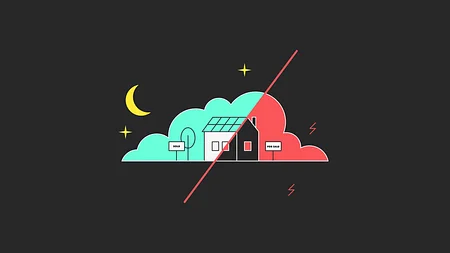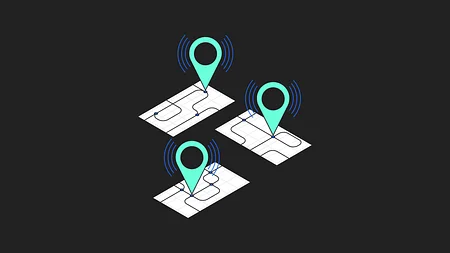Get your processes out of customers’ way

The loans and mortgage industries still haven’t evolved in the digital age. It’s affecting people’s financial and personal lives every single day.
I have a friend, Laura. She is a young professional and all she has ever wanted was to own a flat. And (spoiler alert...), she did get it, eventually. But, to be diplomatic, it was not a good experience.
Ever since I’ve known Laura, she had been crunching numbers for two things:
- Trying to stretch her money to buy more clothes
- Finding a flat to buy so she had somewhere to call home
I am not exaggerating now, but every class at University consisted of her being tied up in her own world crunching numbers. And while her approach might be unique, these goals aren’t. They are what tens of thousands of people consider on a regular basis.
The thing is, no one ever really tells you that saving money is hard. Particularly when you’re a young professional and your salary is not high enough to maintain your fabulous lifestyle and at the same time attempt to save enough money to buy an apartment.
You’ve probably realised by now that Laura’s a determined person and would end up achieving her goal. But the road to getting there was filled with a lot of barriers she’d have to jump before opening the front door to her new home.
Hearing her story made me realise there is a huge underserved market for helping customers “convert” faster, for their own benefit.
Better conversion = improved customer satisfaction?
I should point out that I don’t really like the word “conversion”: it has the connotation that you are trying to trick someone into buying a product. But also conversion, to me, is a win-win situation for both the customer and the business, or should be in most cases.
Customers are not victims, when customers are determined, they want to convert as well. And, in certain situations, such as purchasing a home they want to do it quickly and transparently.
When you’re young and determined, there is little that can stop you from achieving your goal. So conversion just takes on a different meaning and goes to a different level.
The best services should treat everyone as an individual, and not every person is as determined as Laura. People have different feelings towards experiences, like fear, tiredness, frustration, as well as other factors such as time to spend on the application process (and the inevitable follow up and chasing phone calls to ‘help’ lines) and availability.
Laura wanted to convert fast but she wanted to do it in the right way. Knowing exactly the kind of apartment she wanted and the price ranges for the apartments , and after a friend recommended a bank with really good mortgages, she decided to see if she could get lucky.
Most people don’t know much about how mortgages work and hardly anyone really reads the fine print
I asked her the obvious question: “Well, how did you know yours was the best product you could get in the market?”
She replied: “Everyone knows which rates are good and which ones aren’t.”
But do they? And did she?
When deciding to buy a property most people don’t know much about how mortgages work and hardly anyone really reads the fine print. They think that because they understand interest rates generally that makes it okay. I mean, what could go wrong?
So, the bank asked for a bunch of documents when she started her application. Never, at any point in the process , did she know how long the process would take and why they required specific paperwork. And to add the cherry on top it was all manual.
“Weren’t you worn out by the process? Was there an option to switch to a more digital or faster process?” I asked.
She laughed and I realised it then and there. Customers give up when they feel trapped.
Truth is , owning a property has a sentimental value for most people , it’s a huge milestone in your life. And unfortunately most people need a little bit of help to reach that milestone. We are basically tied to the banks’ rules and processes because they understand the lengths people will go to, and what they are willing to endure, to reach that milestone.
Why can’t I get my dream house?
What comes first, the house or the happiness? These are the typical questions you start to ask when things start to get a bit rough. And Laura was not an exception. But she decided to persist.
In Laura’s case it took four months to get accepted by the bank, and for her mortgage to get approved.
“This was pretty fast compared to most mortgage processes,” she said.
Again, I laughed. How is that okay? No customer should wait that long in an uncertain situation and for, arguably, the biggest financial decision you make.
A lot can happen when you’re waiting: deals can fall through and extra fees need to be paid, or if you live in one country where properties are valued in Euros but you earn in GBP — you could be losing money by the minute.
You can imagine how Laura felt about money slipping away , being the “money-stretching-expert”. Annoyed and frustrated don’t even begin to cover it.
The real impact of process inefficiency
It does seem that when you have a dream of home ownership, many people chose to ignore all the pains through the process but Laura did not forget them:
- She didn’t have a lot of product choice
- She didn’t have a lot of visibility into the available products
- The comparison sites usually push for banks that have partnered up with them, so bye bye ‘real’ choice
- The most important problem really is not enough knowledge about the process and clearer information . It kind of happens…as it happens
- The process is far too long and too many people are involved , and this creates the biggest pain
Like many people, Laura lost out on her first flat and on her savings as the currency she was converting from devalued. A real double hit.
Knowledge will become (customer) power
Even without thinking about the financial revolution that’s already in place , banks should be keen on converting customers faster . You get them on board, on your product and you can process more loans.
Increased visibility into loans and mortgages is, slowly, happening and as a result, customers will become increasingly empowered by that knowledge. Customers will start to get picky about both the product choice (interest rates, overpaying options, additional charges) and how the application process works. They will also realise the ‘power’ in this scenario actually lies with them.
Great conversion is not about making money but driving excellence and putting processes in place that are truly connected to the customer’s end goal - buying a home, a holiday, paying for a wedding - not the product you’re trying to sell.
11:FS has taken a look at the mortgage process, the issues, and some potential solutions on this episode of Fintech Insider, alongside Atom Bank, DNB, Habito and Proportunity.


